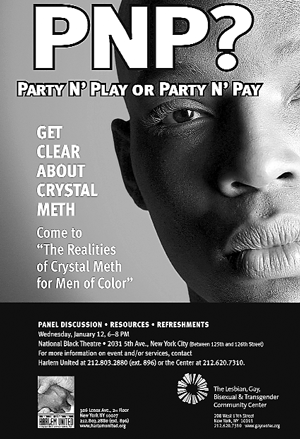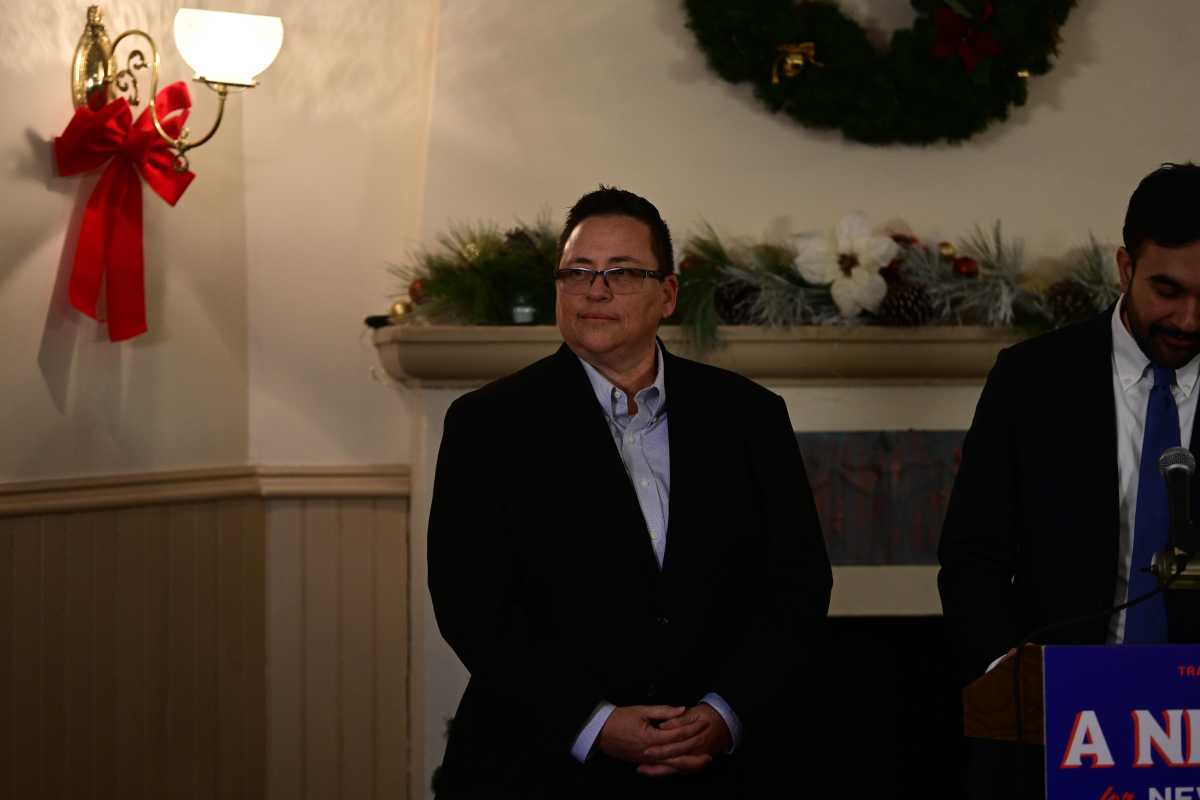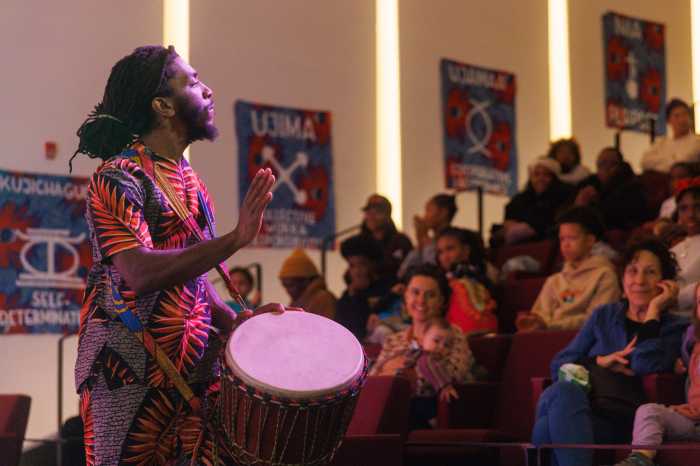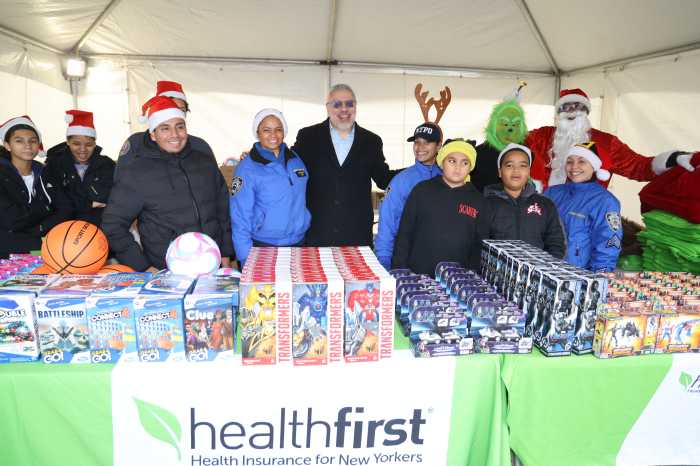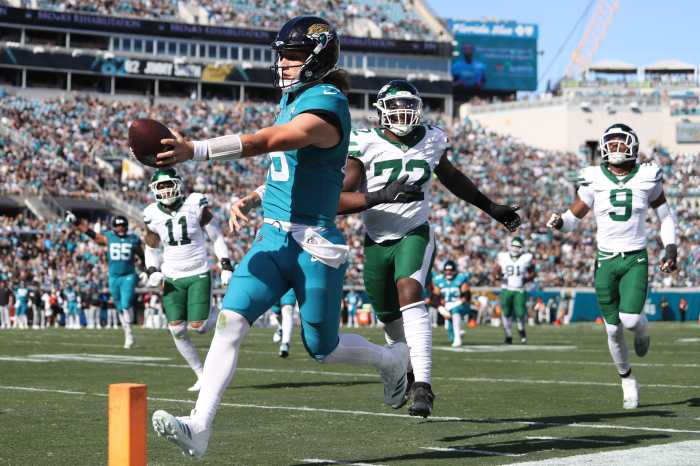Community Center joins a host of black community groups in educational drive
The mounting threat of crystal meth use in the gay African-American community is pushing gay health organizations into action.
The Lesbian, Gay, Bisexual & Transgender Community Center, Harlem United Community AIDS Center and the New York Panthers Leather Club have joined forces and launched a community-awareness campaign beginning with posting compelling posters featuring photos of African-American men, titled “PNP? Party N’ Play or Party N’ Pay.”
The posters went up Monday throughout Harlem, Chelsea and the West Village.
“Men of color are using the substance, even though there were anecdotal feelings in the community that this was not a problem,” said Dr. Perry Halkitis, director of New York University’s Center for HIV/AIDS Education and Training.
Halkitis’ research revealed the severity of the problem and helped motivate the campaign in its early stages.
“We presented data about the findings we had,” he said. “As we talked about in the ‘80s and ‘90s with AIDS, campaigns have to be diverse, so does the meth campaign. All users are not buff boys from Chelsea.”
Dr. Barbara Warren, who is responsible for organizational development, planning and research at the Center, said, “We hope to get continuation funding to keep doing print media and the forums because they fulfill an important role in keeping people informed about the issues.”
The campaign is funded through a grant from the New York City Department of Health & Mental Hygiene.
Warren acknowledged that the posters are merely a start.
“People respond a certain way to visual, but they need a place to come and talk and ask questions,” she said.
Harlem United and the New York Panthers Leather Club are offering that place. The groups will have meth-related information on hand at the Panthers’ Annual Holiday Celebration at the Eagle Bar in Chelsea on December 18. They’re also co-sponsoring a free forum titled “The Realities of Crystal Meth for Men of Color,” to be held January 12 at the National Black Theatre in Harlem.
“The Panthers are a really old organization who have usually taken a low profile,” Warren said. “Now we are teamed up and have an ability through them to reach a community we have not reached. And we have gone uptown to Harlem United. Some of our constituency has never been to anything in Harlem. It’s an opportunity for them to go.”
Gay Men of African Descent (GMAD), an organization that offers support services for the LGBT community, has seen a number of men come in for an HIV test after unsafe sexual encounters while high on meth.
“There have been several episodes of risky sex, which leads to HIV/AIDS problem,” said Borris Powell, GMAD’s program director, in a telephone interview with Gay City News. “One of the effects of crystal meth is that initially people report having amazing and intense sex, but by the third time, most people report not even being able to have an erection. Suddenly they are real high, have an insatiable sexual appetite, but are incapable of sex and they end up in a sexual situation where they don’t have experience being safe—on the bottom.”
Powell reflected on the personality-altering effects.
“The damage this drug does changes a person,” he said. “They look different, they move different. It saddens me to see how people are damaged in such a short period of time, and the damage to the brain is irreversible. It’s terrifying to see what it’s doing to the young generation.”
All of the organizations engaged in the meth effort recognize that they are in early stages with the campaign, but hope to secure funding to move forward and do more to combat meth.
“It’s a start,” Halkitis said. “Posters and campaigns are one element. I think they are effective as a warning sign to those not using, but less effect for those actually using, who will most likely ignore the messages. We need comprehensive treatment programs for men already using.”

